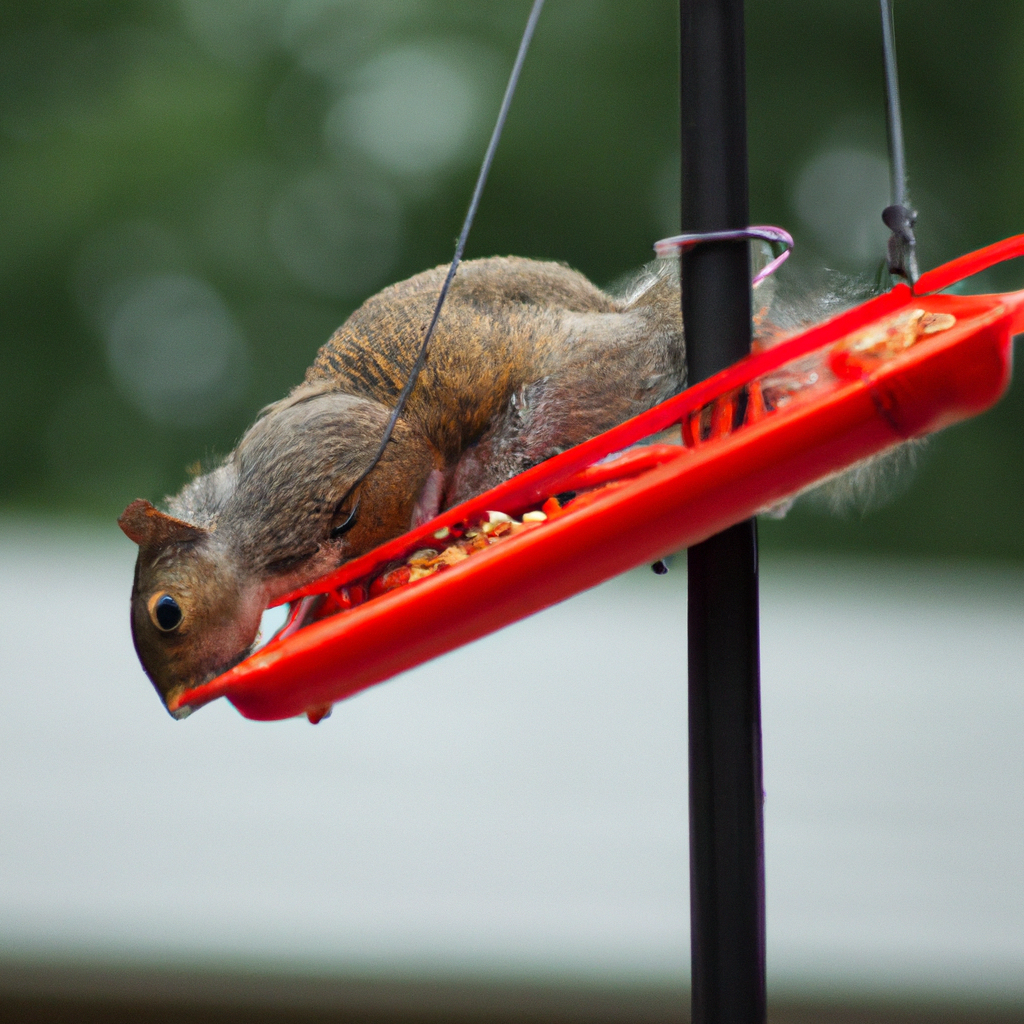Is It Illegal to Shoot Squirrels in Your Yard? Know the Law
Are you grappling with a squirrel invasion in your backyard? Before you consider taking aim, it’s crucial to know the legalities. Shooting squirrels isn’t as straightforward as you might think, and there are significant legal considerations to keep in mind.
Navigating wildlife laws can be a maze of regulations that vary by location. In this article, you’ll discover the ins and outs of dealing with backyard pests and the potential consequences of pulling the trigger. Whether you’re a homeowner or a nature enthusiast, understanding your rights and responsibilities is key.
Stay tuned as we delve into the specifics of squirrel control, the importance of adhering to local laws, and alternative methods to keep your garden critter-free without landing yourself in hot water.
Understanding Wildlife Laws for Shooting Squirrels
Wildlife regulations vary significantly from one region to another. Before you even consider reaching for a firearm, it’s crucial that you first consult your local Fish and Wildlife agency. They’ll provide you with the up-to-date guidelines on whether you’re legally permitted to shoot squirrels in your backyard.
In some areas, squirrels may be protected under wildlife conservation acts, making it illegal to harm them. Other regions might classify these critters as game animals or pests, which can affect the type of permit required. Remember, the type of squirrel—whether it’s a common gray squirrel or a more protected species—can also influence legalities.
Ensure you’re clear about the regulations regarding firearm discharge within city limits. Many urban areas have strict laws against discharging any type of gun in residential areas, which can lead to hefty fines or even jail time. If hunting is permitted, you’ll likely need to apply for a hunting license and possibly complete a hunter’s safety course.
For those living in rural areas, there might be more leniency, but that doesn’t mean there are no rules to follow. A hunting season could be in place, dictating when it’s legal to shoot squirrels. You might need to adhere to specific bag limits, which regulate the number of squirrels you can take.
If you discover that shooting squirrels isn’t feasible due to legal restrictions, exploring humane alternatives for squirrel control is a worthwhile approach. Techniques such as excluding squirrels from certain areas, using repellents, or trapping and relocating them might be more fitting options that keep you on the right side of the law.
Understanding your responsibilities isn’t just about knowing what’s legal; it’s about safety and ethics as well. Respecting wildlife and the regulations designed to protect it ensures a balance between human interests and animal welfare. Whether you’re dealing with pesky invaders or just appreciating nature’s creatures, arming yourself with knowledge is always your best defense.
State-Specific Regulations for Squirrel Control in Your Backyard
Understanding the regulations around squirrel control is crucial as they vary widely from one state to another. While some states offer a level of leniency, others impose strict limitations. It’s essential for you to check with your local wildlife authority for the most updated and relevant information. State regulations can influence not only the methods used for squirrel control but also when it’s permissible to do so.
Specific Seasons and Permits
In several states, squirrel hunting is restricted to certain seasons—generally coinciding with broader hunting periods. During these times, you may be required to possess a valid hunting license, even if you’re targeting squirrels on your own property. States with a defined squirrel hunting season typically require adherence to specific start and end dates, which aim to protect the population during breeding times and ensure sustainable wildlife management.
Species Protection
Remember that some squirrel species may be protected under state law, and targeting them could lead to hefty fines or even criminal charges. For example, laws are different for red and gray squirrels, and what applies to one type may not apply to another. Knowing the exact species of squirrels in your backyard is a step you can’t skip.
Safety Considerations
Safety is another major concern in suburban settings where firearm discharge may pose a risk to neighbors. Because of this, many states have regulations dictating minimum distances from occupied buildings or roadways for the discharge of firearms. Some states even go as far as to prohibit firearms use for pest control within city limits, pushing for more humane and non-lethal methods such as live trapping or deterrents.
Alternative Methods
Exploring alternatives for squirrel control is a practical approach. You might consider:
- Live traps
- Decoy predators
- Ultrasonic repellents
These humane methods can effectively manage squirrel populations without running afoul of state laws or risking the safety of your neighborhood. They’re often recommended by wildlife experts and are suitable for use in many areas where traditional hunting is not an option. Always bear in mind the ecological role squirrels play and the importance of ethical treatment toward all wildlife.
Consequences of Illegally Shooting Squirrels
When you shoot squirrels without proper authorization, you’re not just harming wildlife – you’re potentially breaking the law. Penalties for shooting squirrels illegally can be severe, including hefty fines and even jail time. States often classify this action as a wildlife crime, and repercussions are taken seriously to deter future offenses.
The impact extends beyond your immediate surroundings. Illegal hunting can disrupt local ecosystems, threatening the balance of plant and animal populations. When you remove a species like squirrels, you may unintentionally increase the spread of seeds by undesirable plants, altering habitats.
Being caught in the act of illegally shooting squirrels often leads to legal ramifications such as:
- Fines: These can range from minor penalties to significant amounts, depending on the severity of the offense and the state laws.
- Jail Time: Serious infractions can lead to incarceration, especially if you’re a repeat offender or have harmed a protected species.
- Loss of Hunting Privileges: Your right to legally hunt may be suspended or revoked entirely, making it illegal for you to engage in hunting activities for a set period or for life.
- Confiscation of Equipment: Firearms and other hunting gear used in the act may be seized by authorities.
It’s also important to note that illegal hunting can harm your reputation within the community and could impinge on any future hunting or firearm license applications. Some states also have restitution programs where violators are required to compensate for the conservation and management of wildlife resources.
If you’re tempted to use lethal means for squirrel control, explore humane alternatives and consult with experts. Such strategies won’t put you at legal risk and contribute to a healthier ecosystem.
Remember, when in doubt, reaching out to local wildlife authorities can save you a great deal of trouble down the line. They’ll provide the latest legal guidelines and help you find effective, law-abiding solutions for managing squirrels in your backyard.
Alternatives to Shooting Squirrels in Your Garden
When you’re dealing with unwanted furry visitors in your garden, it’s important to remember that lethal measures aren’t your only option. Live trapping, for example, is a humane way to relocate squirrels without harming them. You can find a variety of effective live traps on the market that are easy to set up and safe for the animals. Once trapped, release the squirrels into a natural habitat far from residential areas, following local guidelines to ensure it’s done legally.
You might also consider deterrents and repellents as a non-lethal solution. There are several commercial products designed to keep squirrels away, including:
- Ultrasonic repellents: These devices emit a high-frequency noise that’s uncomfortable for squirrels but generally inaudible to humans.
- Motion-activated sprinklers: Positioned strategically in your garden, these can startle squirrels and encourage them to scurry off elsewhere.
- Natural repellents: Items like peppermint oil, predator urine, or capsicum can create an unwelcoming environment for squirrels.
Habitat modification is key; it reduces the allure of your garden to squirrels. Removing food sources like accessible bird feeders and sealing entry points for squirrels can prevent these critters from seeing your garden as an ideal dwelling spot. Cultivating plants that squirrels find unappealing, such as daffodils or hyacinth, can also act as a natural deterrent.
Physical barriers pose another practical solution. Installing netting or fencing can be very effective, especially if it’s incorporated with electrical fencing for added deterrence. Remember, though, that squirrels are agile climbers and jumpers, so your barriers will need to be robust and well-maintained.
Utilizing these methods not only helps manage squirrel populations humanely but also protects local wildlife and ensures you’re respecting the law. Plus, your approach to solving this backyard dilemma can serve as a positive example within your community, promoting coexistence over conflict with nature. It’s all about finding the right balance that allows both your garden and local fauna to thrive.
Responsible Pest Control: Balancing Wildlife Conservation and Property Protections
When dealing with squirrels or other wildlife in your garden, you’re not just a homeowner; you’re part of the larger ecosystem. Wildlife laws vary by location, but they often reflect a growing acknowledgment of the importance of every species in the environment. It’s vital to understand the nuances of these regulations to ensure that your pest control methods are legally compliant and environmentally friendly.
Habitat protection and animal welfare are at the heart of responsible pest control. An effective strategy respects the role of squirrels in the ecosystem while safeguarding your property. Before taking action, assess the situation: are the squirrels causing significant damage, or are they simply foraging as part of their natural behavior?
Live traps offer a non-violent approach to managing squirrels, allowing you to capture and relocate them without harm. It’s essential to check your local laws regarding relocation, as some areas may have restrictions to prevent ecological imbalances. If live trapping isn’t suitable, consider repellents and deterrents. Ultrasonic devices emit frequencies inaudible to humans but uncomfortable to squirrels, and motion-activated sprinklers can startle and dissuade these critters from making your garden their home.
At the heart of protecting your property is the practice of exclusion techniques. Sealing off entry points to your house and securing food sources can greatly reduce the appeal of your space to squirrels. Physical barriers such as metal or heavy-duty plastic netting ensure that plants remain untouched.
Exploring these options helps maintain a dynamic balance where your enjoyment of a well-kept garden and the vitality of local fauna are not mutually exclusive. Engaging in responsible pest control is about making informed choices that support both wildlife conservation and the integrity of your property. Remember, every choice you make in your backyard has repercussions that ripple through the natural world.
Conclusion
Navigating the challenge of squirrels in your backyard requires a thoughtful approach that respects both the law and wildlife. You’ve got a range of options at your disposal, from humane traps to innovative deterrents, that can effectively address your squirrel troubles without running afoul of legal restrictions. Remember, safeguarding your home and garden should go hand in hand with conservation efforts. By choosing responsible pest control strategies, you’re contributing to a solution that benefits everyone—yourself, the squirrels, and the broader ecosystem. Keep your actions legal, ethical, and environmentally sound, and you’ll maintain the delicate balance between human and wildlife habitats with finesse.
- 10 Creative Backyard Handicraft Ideas for Summer Gatherings to Inspire Your Outdoor Fun - September 29, 2025
- What Chicken Breeds Lay the Most Eggs? Top Egg-Laying Poultry for Maximum Production - September 29, 2025
- How Do I Start an Outdoor Bootcamp Business in My Backyard? A Step-by-Step Guide - September 29, 2025




